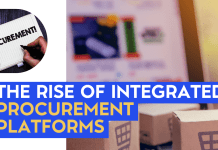Jason Stapley, managing director of framework organisation Pagabo, looks at the important aspects public sector bodies must consider when selecting a framework provider
Framework organisation Pagabo reacted quickly to the governments recently released Procurement Policy Notes (PPN 01/20) which provides contracting bodies options for emergency works directly related to helping in the recovery phase of Covid-19.
As well as this crucial support from government to activate vital emergency projects rapidly, Pagabo was the only framework provider to offer its framework agreements, free of all fees, where extreme urgency was required.
Government has recognised that the construction sector is central to the UK recovery – and therefore frameworks will be even more critical for the post-Covid world as public sector bodies look to activate ‘on ice’ projects quickly and effectively.
But organisations are continuing to procure through frameworks – as well as through the PPN 01/20 which allows contracting authorities to adjust their procurement approach to meet urgent needs. To protect public money and resources, authorities must demonstrate a robust business case, suitable governance, and objective decision making.
Efficient procurement
Despite the exceptional circumstances, our sector continues many of its usual activities. Construction projects and programmes continue to progress, albeit with restrictions and at a reduced pace. Future projects are being planned for when ‘normal’ life resumes, and emergency requirements are being created and facilitated at speed.
We strongly believe that the quickest and most efficient way to procure is using a framework agreement — particularly one with a designated Direct Award process. Our frameworks allow for direct award and provide clients with a ready-made, simple and compliant solution, accelerating access to works, goods and services providers.
But aside from the current Covid circumstances, clients need to work with framework organisations which are transparent about fees. Not all frameworks are, and there may be costs throughout a project which clients may not expect. Pagabo has transparency around fees and we feel that as an industry, framework organisations have a responsibility to offer that clarity – and particularly post-Covid as we move into recovery phase.
Choose a framework provider carefully
Framework providers must provide simple, affordable and accessible solutions, but they must go further. In the same ways that the public sector needs to consider the suitability of their consultant or contractor, the public sector must choose a framework provider carefully.
Questions public bodies should ask their framework providers, include:
- Is the framework provider has been procured correctly itself?
- Are they a credible organisation?
- Do they have the capacity to manage these types of frameworks?
- Are they compliant and financially stable?
They should also look at their framework KPIs and how these are monitored – including social value. They should ask about the organisation’s procurement team. Afterall, it’s this team who should all have the expertise and necessary qualifications – including MCIPS, MRICS, and project management.
Public bodies should ask about fee structures and how they are applied. It is also important to find out how the framework provider carried out an extensive engagement with the market to establish a genuine estimate of the whole framework value. In short, frameworks should be simple, transparent and affordable.
Be open and honest about fees
Frameworks operate in different ways, but it is important for framework providers like us to be open and honest about fees. To be clear, there is no such thing as a rebate free framework of course. But the way Pagabo charges on a ‘pay as you go’ basis offers clients clarity – and the ability to manage fees through the life cycle of the project.
It’s important to look at the whole cost of procurement and the support being offered, not just look at a rebate fee in isolation.
Pagabo begins the charging process only after a project has started on site. There are no management costs or upfront rebates charged – even if a project falls over or there is a reduction in the construction value. Some framework providers apply a charging structure with the contractor having to bear a large proportion of the rebate at the outset.
Frameworks need to act differently in the post-Covid world. There is a lot of emphasis on contractors and consultants acting responsibly, but as part of the journey, Framework providers also need to work differently to help government realise its objectives.
At Pagabo we are listening to clients and understanding which projects our public sector clients are looking to procure and when. We are sharing that information with our partners, where and when we can, to instil confidence and help them plan for the recovery phase and beyond.
As a backdrop to all of this, we are seeing a tremendous amount of client access agreements coming through, which is really encouraging. Despite the current challenges, we can see clients signing up and procuring services from the design and early stages. There has been no real waning in the design side of things – which is both positive and hugely interesting in the current circumstances.
We can see clients progressing – and even accelerating – the design phase. Clients want to be prepared and get their design discussions progressed, ready for when projects begin again. This early work is buoyant because clients are making use of the time to progress the design elements.
Our suppliers are also telling us that while productivity may be lower, it is giving them an opportunity to look at their long-term strategy. They say that a strong strategy will help them through this recovery phase. And they say they see great benefit to align with the opportunities being brought to the table through Pagabo.
 Jason Stapley
Jason Stapley
Managing director
Twitter: @Pagabo
LinkedIn: Pagabo Frameworks














